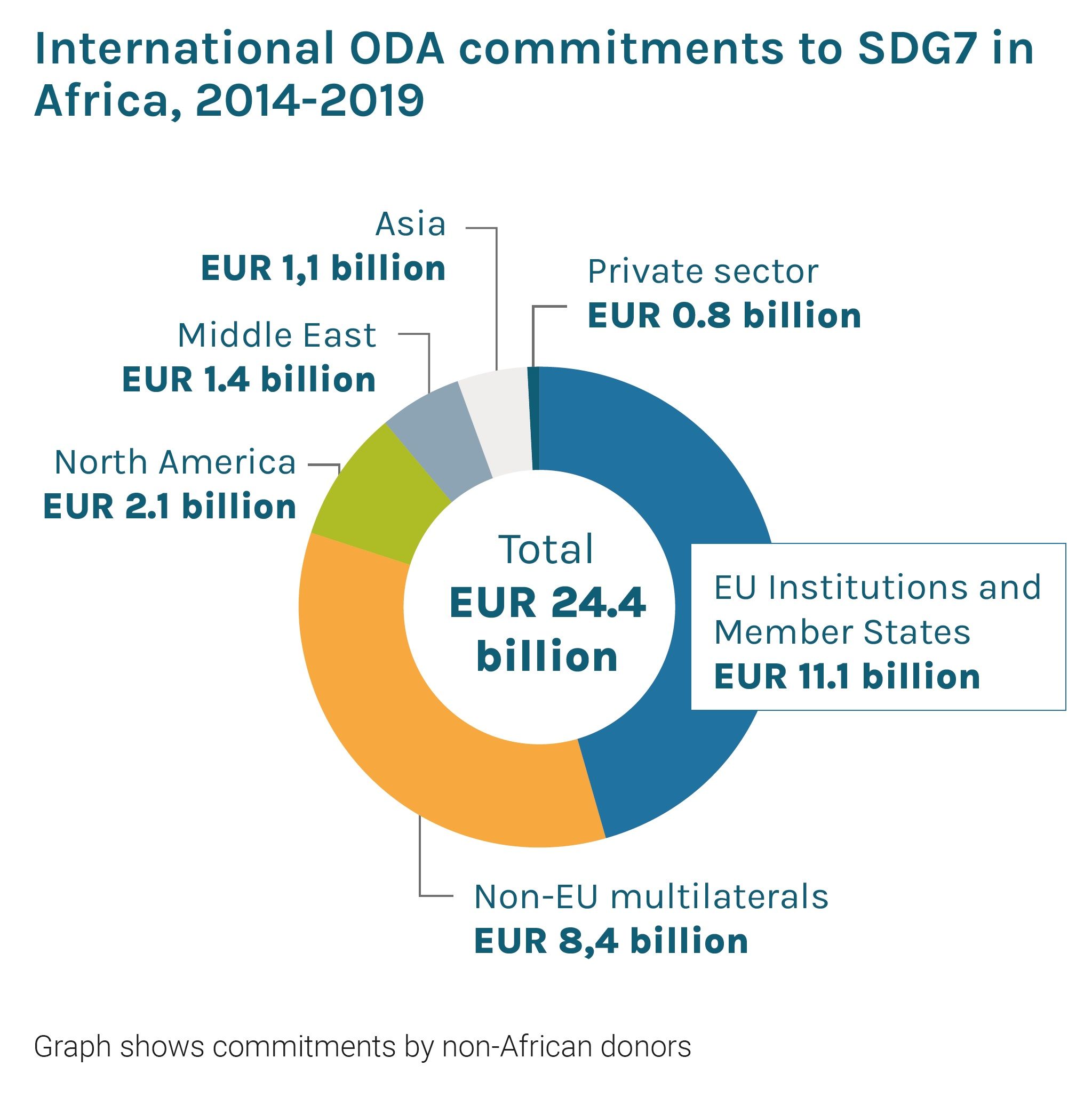Report: Enhanced Co-Operation Can Achieve SDG7 in Africa

Bonn, Germany – 31 August, 2021 – A new report finds that greater coordination can make SDG7 a reality in Africa by 2030. The European Financial Flows on SDG7 to Africa report, commissioned by the Africa-EU Energy Partnership (AEEP), explores and contextualises the required funding and shows that the amounts needed, while substantial, can be leveraged. Merely avoiding the economic losses from electricity outages in Africa would free up the funds required to provide access to sustainable energy services to all of Africa´s citizens. Expressed differently, the additional funding requirement of EUR 69 billion per annum is only 3.1% of African GDP and a mere 0.5% of European GDP.
The report, which assesses the quantity, quality and equitability of African and European contributions to SDG7 in Africa, reveals that profound intent exists with African governments, European partners and other key players in the international community to reach this important goal by 2030.
African governments and development institutions have borne the primary responsibility and initiative for energy sector investments on the continent. During 2014-2019, African governments invested the largest share, EUR 66.2 billion, out of a total EUR 108 billion, into the African energy sector.
Europe is the world leader in SDG7-compliant energy investment in Africa. Aggregated data shows that EU Institutions and Member States have committed EUR 11.1 billion in Official Development Assistance (ODA) into SDG7-compliant projects in Africa during the period under investigation. This amounts to 46% of all energy ODA investments which stand at around EUR 24.4 billion.
“As the analysis of financial flows in our report shows, achieving SDG7 in Africa lies within reach. Africa and Europe are leading the way – both globally and through their unique partnership. We now need to deploy our full strength, technologies, financing and innovation to make it happen. Because the cost of inaction is far greater.“
Johan van den Berg, Head of Secretariat, Africa-EU Energy Partnership
The overall growth of financial flows and an increased interest in African domestic energy markets by local and international private sector investors point towards a positive outlook for the continent. Nevertheless, to ensure access to affordable, reliable, sustainable and modern energy for all by 2030 – in line with SDG7 –, the report concludes that ODA spending and private investments may need to increase by 27% per year over this decade, along with a substantial increase in national government spending.
Furthermore, the report concludes that inaction is expensive. Power outages are, for example, currently estimated to cost sub-Saharan Africa more than 2% of GDP per year. Therefore, if Africa does not achieve the SDG7 targets, the long-term economic losses arising from a lack of electricity access risk being equal or even greater to the funding requirement.
The European Financial Flows on SDG7 to Africa report will be followed by a 2022 edition helping to inform the next phase of joint action on energy in the lead-up to the 6th AU-EU Summit.
Download the full report at: sdg7.africa-eu-energy-partnership.org
Media Contacts
For media inquiries, please reach out to:
E: maximilian.heil@aeep-secretariat.org
Maximilian Heil, Communications Advisor, Secretariat of the Africa-EU Energy Partnership





